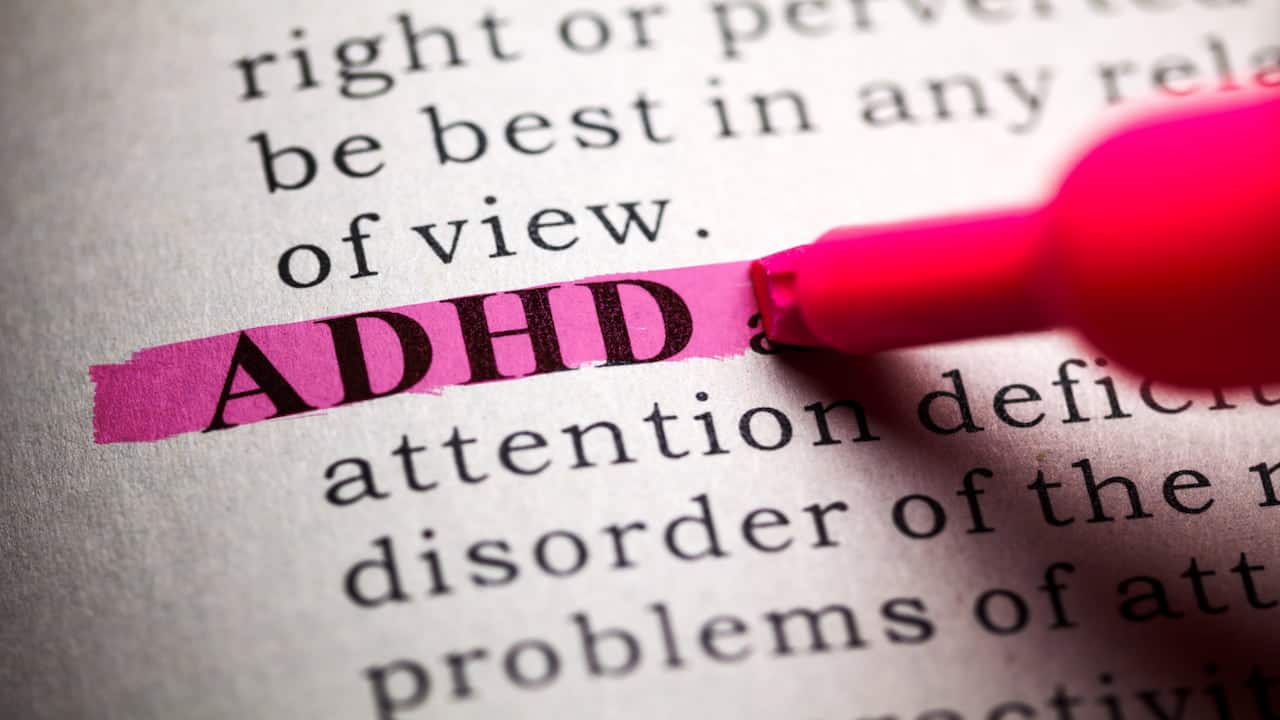Ever considered hypnosis for ADHD? Most often, people experiencing ADHD will have short attention spans or be hyperactive (can’t stay still in one place for a long time). It’s been researched and scientists have pointed out ADHD as being genetic.
If you find somebody with adult ADHD, it is most likely that they have a family member who also has it. Some of the symptoms include: making careless mistakes at the workplace or in school, always seeming distracted when somebody is talking to them, blurting out an answer before the teacher or somebody finishes the question, etc.
Hypnosis Downloads
Hypnosis has become popular in treating ADHD. Websites such as Hypnosis Downloads offer hypnosis audios, which help you manage your ADHD.
It can be frustrating when you sit down to work but you end up with zero productivity and getting distracted. However, with a simple hypnosis audio, you can have a chance at rebuilding your life again.
The audios help you to focus more on your strengths as opposed to your weaknesses. You end up viewing yourself as capable and you’ll learn to be more positive.
What’s even exciting is the fact that the audios are easily accessible and are downloadable on your phone and computer. There’s also an app available if this is what you prefer.
What is Hypnosis for ADHD?
Hypnosis for ADHD is a process in which a therapist triggers brain activity similar to when you are in the theta state of mind, where people are less aware of their surroundings. This can cure different things that arise from negative emotions or habits.
ADHD, or attention deficit hyperactivity disorder, is a neurobehavioral developmental disorder. The symptoms include difficulty staying focused and paying attention, difficulty in managing behavior, and hyperactivity. There are three subtypes of ADHD recognized by the DSM-5:
- Predominantly inattentive – symptoms of inattention without significant signs of hyperactivity or impulsivity
- Predominantly hyperactive-impulsive – symptoms of hyperactivity and impulsivity without tangible signs of inattention
- Combined type – symptoms of inattention and hyperactivity/impulsivity that are present for at least six months.
Hypnotherapy for ADHD works using the following principle: The therapist puts the patient into a trance, but instead of making them do something against their will, they guide them to think differently about themselves, which changes the ADHD symptoms.

The first step is for the therapist to find out as much as they can about you and how you relate to others. If your mind is cluttered and you react impulsively, then your relationships will be limited and chaotic. The therapist needs to find out what the problems are to help you resolve them.
They might ask about your childhood or talk to friends or family members about how they experienced your behavior. By learning more about who you are and how you relate to others, the therapist can determine how ADHD plays into that. It will also help them decide what techniques to use during hypnosis and where to focus their attention.
What are the Benefits of Hypnosis for ADHD?
Hypnosis for ADHD has only been proven to help people with sub-clinical symptoms. This means that you can improve your self-control, attention span, and behavior without medication. And what’s more, the effects of hypnosis are lasting. You won’t need to go through regular sessions forever or follow complicated instructions at home—learn some techniques to use when you need them. Hypnosis for ADHD will not cure you of the medical condition. It’s most beneficial when paired with other therapies, like cognitive behavioural therapy or social skills training.
Why Would Anyone Want to be Hypnotized?

People choose to be hypnotized for different reasons, but most are looking for help while making fundamental changes in their lives. Here are some of the reasons people have given into hypnosis treatment:
- To give up smoking or lose weight
- To have better self-esteem and make more friends
- To stop procrastinating and get their lives in order
For all these things, hypnosis can make a world of difference by calming your brain, boosting your motivation, and helping you make better choices. It’s not a quick fix. You’ll need to put in the necessary work to see results.
Does Hypnosis Work For ADHD?
If a person has a high enough IQ, they might have no problem being hypnotized. For those with neurological differences that limit their ability to concentrate and control their impulses, hypnosis won’t work as well as for someone without those issues. It is difficult to go into a trance state when you have difficulty concentrating or controlling your thoughts and impulses.
The right therapist who understands ADHD is key to getting the best results with hypnosis for ADHD. They’ll need to know how the condition affects you and what barriers there might be in therapy. They mustn’t say just about hypnosis but also about cognitive behavioral therapy and other techniques that will help you be successful.

What is ADD?
Attention Deficit Disorder is a mental disorder that makes it difficult to concentrate, resulting in poor performance in school or work (see work hypnosis). Symptoms include being easily distracted, forgetful and disorganized.
How do you get ADD?
It’s still unknown what causes the disorder; however, genetics and chemical activity in the brain seem to play roles.
What are the symptoms of ADD?
The signs of Attention Deficit Disorder include: Being easily distracted, difficulty paying attention, forgetfulness, disorganization, trouble finishing tasks, losing things often, fidgeting or squirming, especially when doing something that requires focus, like reading or listening to someone.

Is Hypnosis Good for ADD?
Hypnosis isn’t for everyone, but people with ADD seem to benefit more than most. It’s thought that because of all the distractions in our environment and the low threshold of the condition itself, people with ADD are able to focus their attention on one thing at a time—which is what hypnosis does. Many people with ADD and ADHD feel like they’re in a constant battle to keep their focus on simple tasks. They might find themselves focusing for long periods, only to be interrupted by distractions at the worst possible moment.
Hypnosis can help you learn how to manage those interruptions and cope with the root issues behind them, so you don’t struggle as much anymore. That’s not to say that hypnosis is a quick fix. However, it has the potential to change your life, but it takes work and dedication on your part to see results. You’ll need to learn to focus your attention, practice new behaviors and techniques regularly, and monitor your progress.
Hypnosis for ADHD, A medication-free Alternative
Most importantly, you’ll need to find the proper hypnotist for you. Hypnosis involves attending therapy sessions (see also self-therapy explained) and not all therapists understand Developmental Disorders, so make sure they have experience working with people with ADD and patience. Research by the Hebrew University medical center showed that hypnosis, with a combination of methylphenidate medication, may improve cognitive performance in children and ADHD adults.

How it Works
The basic principle behind hypnosis is that your concentration abilities are heightened while in a trance state, allowing you to use the power of your mind to alter destructive behaviors and thoughts. Many people with ADHD also have insomnia, and hypnosis can help them sleep better at night.
Research has shown that using hypnosis for ADHD may improve brain function in some areas, such as the prefrontal cortex. This part of the brain is responsible for attention, impulse control, and executive function. When you are in a trance state, it’s easier to tap into these abilities by using positive suggestions to change your behavior.
Hypnosis will work even better if you also use other therapies or medication while undergoing hypnosis treatment. It would help if you always talked to your doctor before starting any new treatment for mental health (see health hypnosis).
What to Expect
At your first visit, you’ll meet with your therapist and discuss your diagnosis. Your therapist will ask you about any interruptions in therapy, as well as how often you’ve practiced the techniques they’ve given you. It is not just to assess your progress but also to determine whether hypnosis is right for your needs.
Next, you’ll go into a room where the therapist will lead you in a hypnosis session. They may use visual aids or soothing music to help get you into a trance state. In some cases, they might even have someone else come into the room with an instrument to measure your vital signs while under hypnosis. You’ll come out of the trance state feeling refreshed and relaxed, ready to get started on your new treatment plan.

What is the Best Therapy for ADHD?
According to the most recent studies, hypnosis is among the best therapies for treating ADHD. Also, this therapy can help control or even reverse symptoms of other mental disorders, especially anxiety and depression. Antidepressants used to treat ADD/ADHD are often stimulants themselves which cause many people with ADD to feel “jittery” or “on edge.” Hypnosis has also been shown to help people with other mental disorders because it teaches them to focus their attention on something productive.
After being hypnotized, you’ll feel relaxed and refreshed, ready to work on your adhd medications plan. Note that hypnosis doesn’t work overnight; it takes time, practice, and patience, but it can minimize your symptoms.
Conclusion
Hypnosis for ADHD is a non-invasive, ADHD medication-free alternative therapy that can help you manage the symptoms of your diagnosis. It takes some work on your part to get started; however, once you begin practicing techniques and receive regular hypnosis sessions, it’s easier to control impulsive behaviors and stop distractions.
Over time, many people have found that their symptoms improve as a result of hypnosis. Studies show that hypnosis can reduce the symptoms of anxiety and depression, and other mental disorders. This therapy has also been shown to help ADHD patients maintain focus and control behaviors.

